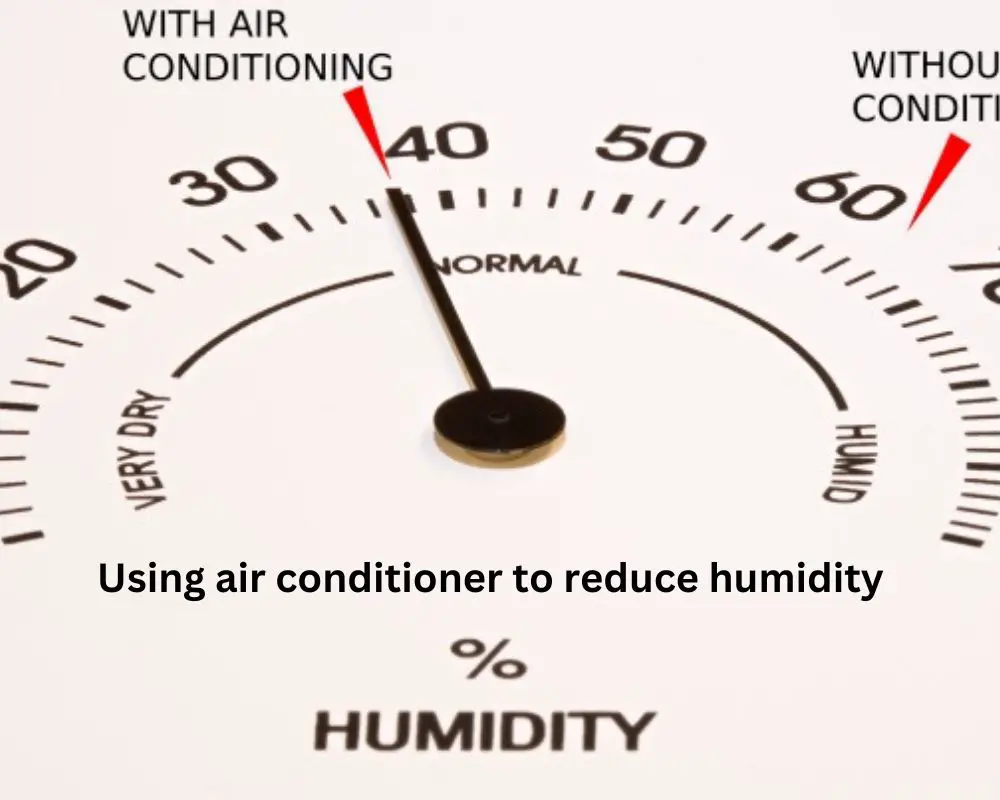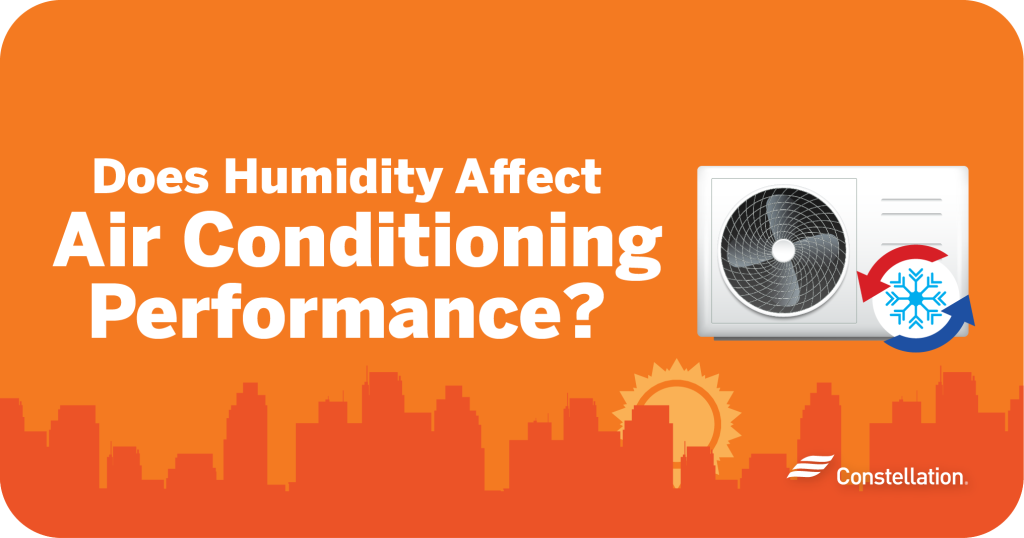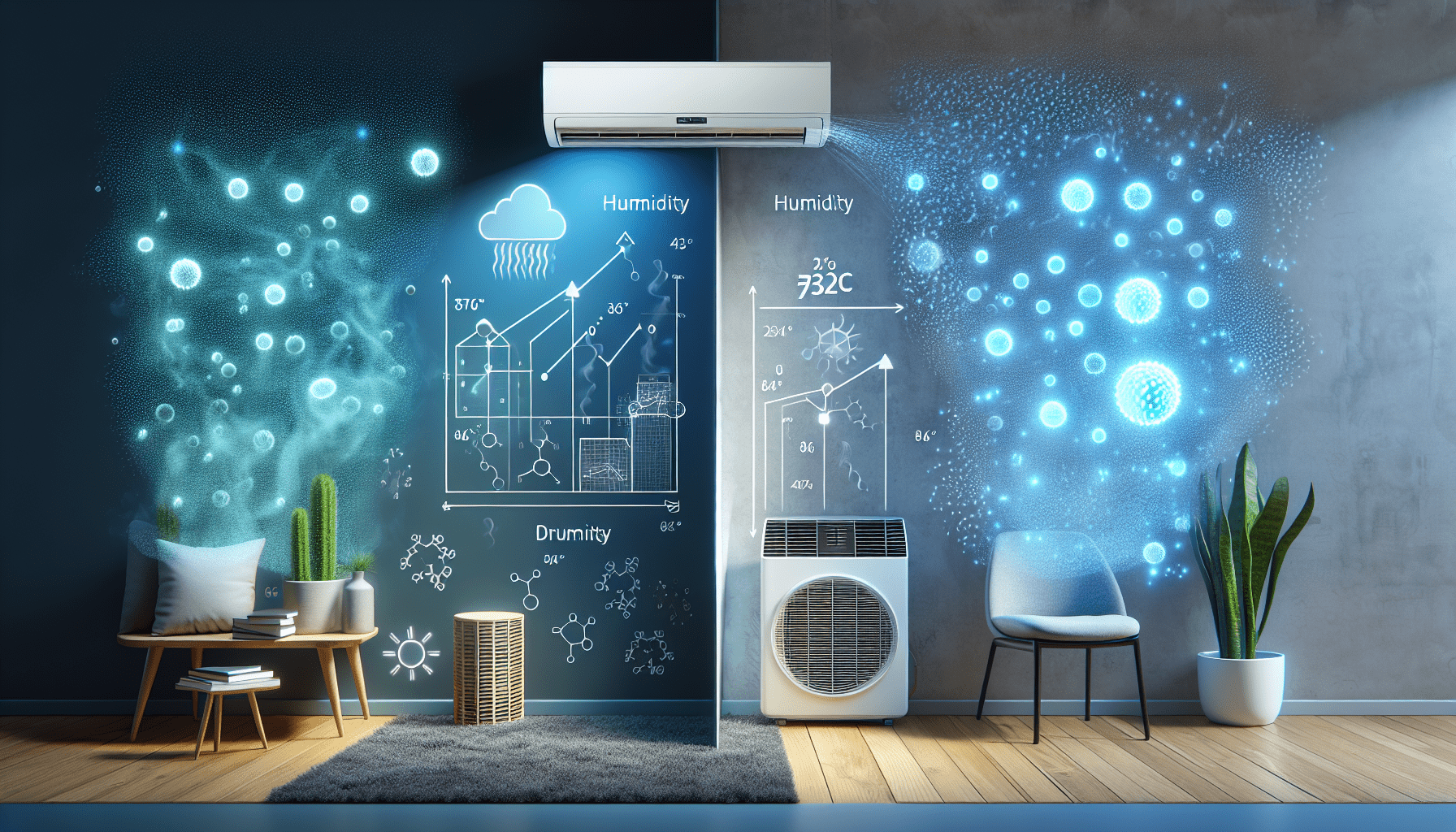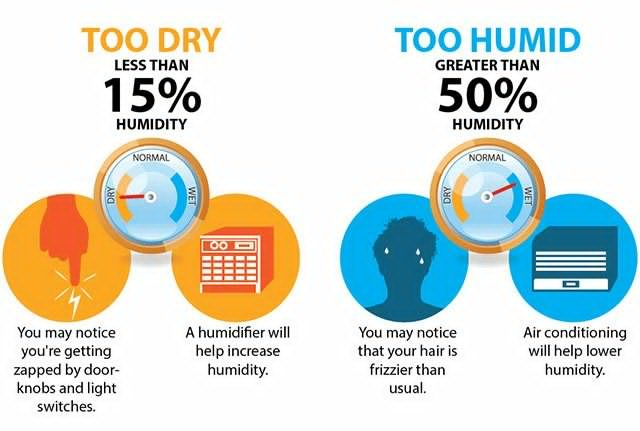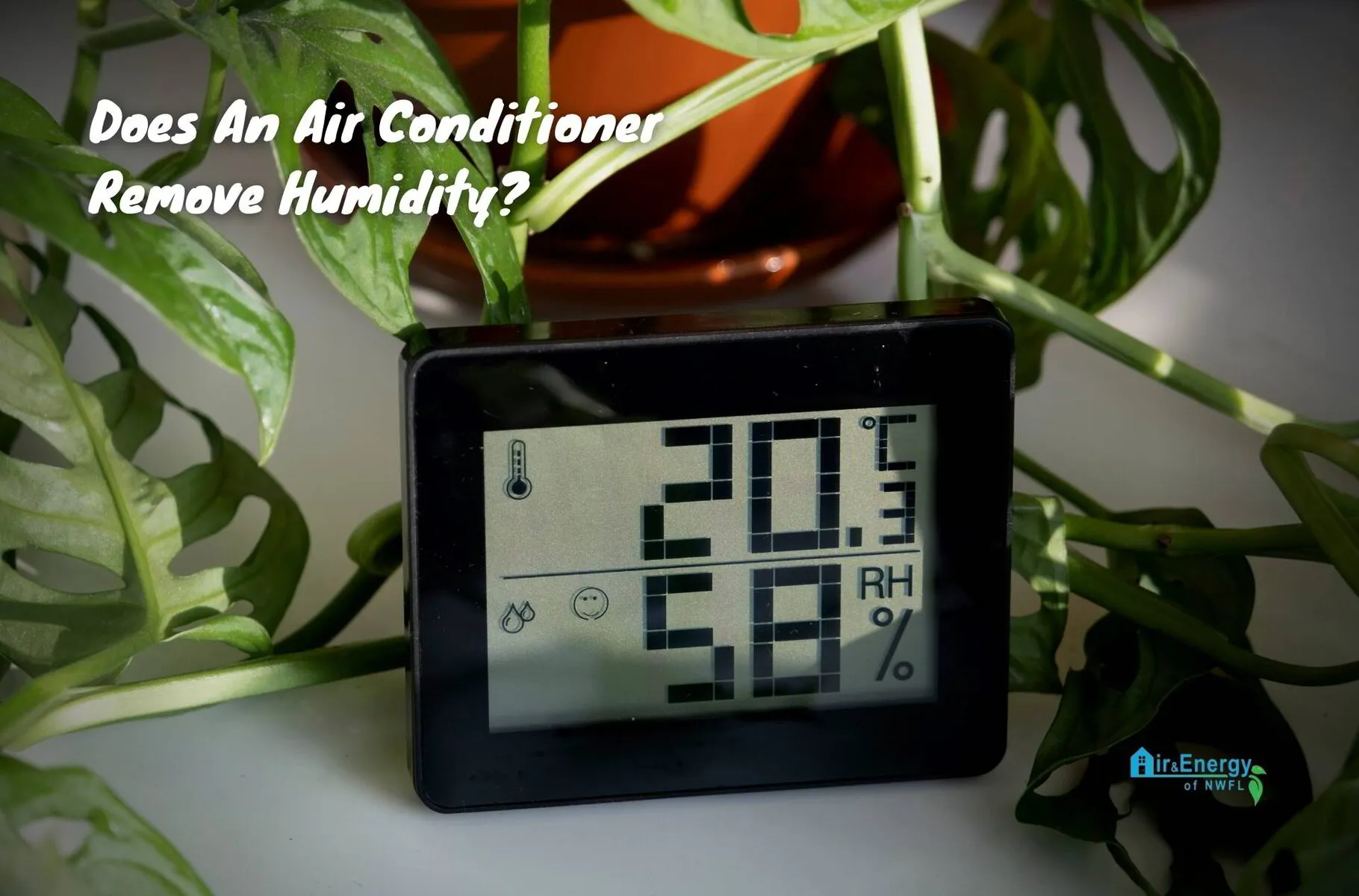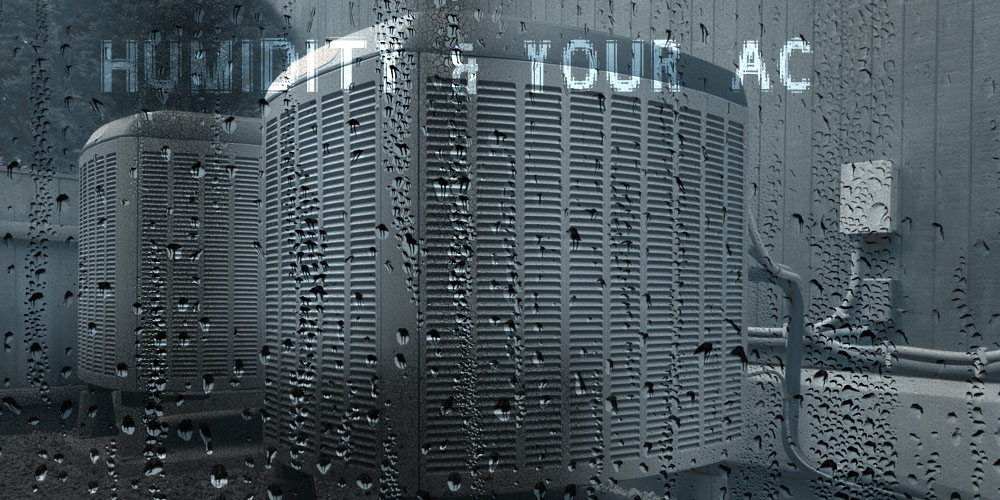Does Air Conditioning Help With Humidity
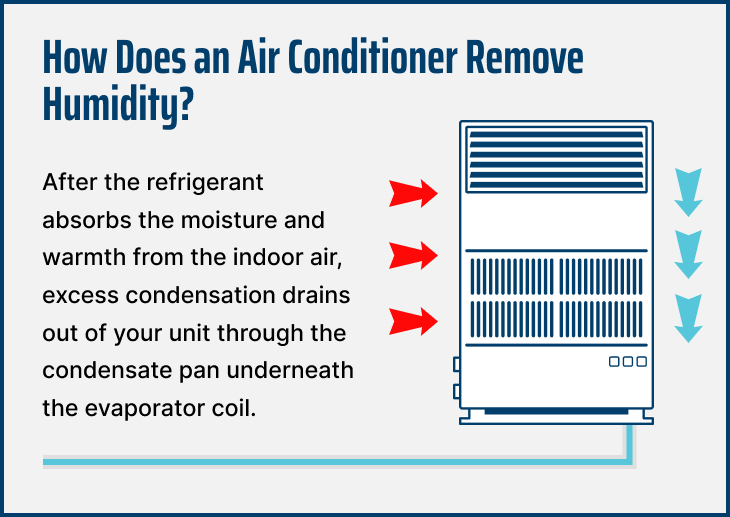
Humidity, that sticky, uncomfortable feeling in the air, is a common enemy, especially during summer months. While many associate air conditioning primarily with cooling, its impact on humidity is significant and often overlooked. This article explores how air conditioning helps control humidity, the mechanisms behind it, and what factors influence its effectiveness.
The Science Behind Air Conditioning and Dehumidification
Air conditioning works by circulating refrigerant through a closed-loop system. This system comprises four main components: the compressor, condenser, expansion valve, and evaporator coil. The magic of dehumidification happens at the evaporator coil, typically located inside your indoor air handler.
Here’s a breakdown of the process:
- Warm, humid air is drawn in: The blower fan in your air handler pulls warm air from your home across the cold evaporator coil.
- Condensation occurs: The evaporator coil contains cold refrigerant. As the warm, moist air passes over it, the moisture in the air condenses. Think of a cold glass of water on a humid day; water droplets form on the outside. The same thing happens on the evaporator coil.
- Water is drained away: The condensed water, now liquid, drips off the evaporator coil into a drain pan. This water is then channeled through a drain line to the outside or a designated drain. You might notice this as a constant drip during periods of high AC usage.
- Cooled, dehumidified air is circulated: The cooled and dried air is then blown back into your home, lowering both the temperature and the humidity levels.
The key takeaway is that air conditioning systems are inherently dehumidifying. They don't just cool the air; they actively remove moisture from it. This is a crucial distinction.
Why is Dehumidification Important?
Beyond comfort, controlling humidity offers several significant benefits:
- Improved Comfort: High humidity prevents sweat from evaporating effectively, making you feel hotter and stickier. Lowering humidity allows your body to cool itself more efficiently, enhancing comfort.
- Healthier Indoor Air: High humidity promotes the growth of mold, mildew, and dust mites, all of which can trigger allergies and respiratory problems. Reducing humidity inhibits their growth, leading to improved indoor air quality.
- Reduced Odors: Mold and mildew are common sources of musty odors. Controlling humidity helps prevent their growth, eliminating these unpleasant smells.
- Prevention of Structural Damage: Excessive moisture can damage wood, drywall, and other building materials, leading to costly repairs. Maintaining proper humidity levels protects your home from moisture-related damage.
- Energy Savings: When humidity is lower, you can often set your thermostat a few degrees higher without sacrificing comfort. This translates to reduced energy consumption and lower cooling bills.
Factors Affecting Air Conditioning Dehumidification Performance
While air conditioning inherently dehumidifies, several factors can affect its performance in this area:
- System Size: An oversized AC system may cool your home too quickly without running long enough to effectively remove moisture. This can lead to a cold but still humid environment. Conversely, an undersized system will struggle to cool your home and won't have the capacity to dehumidify adequately. Proper sizing is critical. HVAC technicians use a Manual J load calculation to determine the correct size unit for a home.
- Airflow Issues: Restricted airflow due to dirty air filters, blocked vents, or improperly sized ductwork can reduce the amount of air passing over the evaporator coil, hindering dehumidification. Regularly replace air filters and ensure proper airflow throughout your home.
- Refrigerant Levels: Low refrigerant levels reduce the cooling capacity of the evaporator coil, diminishing its ability to condense moisture. Refrigerant leaks should be addressed promptly by a qualified HVAC technician.
- Climate: Homes in humid climates, like the southeastern United States, require air conditioning systems to work harder to remove moisture compared to drier climates.
- Insulation and Air Sealing: Poor insulation and air leaks allow warm, humid air to infiltrate your home, overwhelming the AC system's dehumidification capabilities. Improving insulation and sealing air leaks reduces the load on your AC system and enhances its ability to control humidity.
- Thermostat Settings: Setting the thermostat too low can cause short cycling, where the AC unit turns on and off frequently without running long enough to effectively dehumidify.
Dedicated Dehumidifiers: When Air Conditioning Isn't Enough
In some cases, air conditioning alone may not be sufficient to control humidity levels, especially in basements or during periods of low cooling demand (like spring and fall). In these situations, a dedicated dehumidifier can be a valuable addition. Dehumidifiers are specifically designed to remove moisture from the air, without significantly lowering the temperature.
Types of dehumidifiers include:
- Portable Dehumidifiers: These are self-contained units that can be moved from room to room. They are relatively inexpensive and easy to use but require manual emptying of the water collection tank.
- Whole-House Dehumidifiers: These are integrated into your HVAC system and dehumidify the entire home. They are more expensive than portable units but offer greater convenience and efficiency. Whole house dehumidifiers often drain directly into a plumbing line, eliminating the need for manual emptying.
Choosing the Right HVAC System for Humidity Control
When selecting a new HVAC system, consider the following factors to ensure optimal humidity control:
- System Type: Variable-speed or two-stage air conditioners offer superior humidity control compared to single-stage models. These systems can run at lower speeds for longer periods, allowing for more effective dehumidification without overcooling.
- SEER Rating: The Seasonal Energy Efficiency Ratio (SEER) indicates the cooling efficiency of an air conditioner. A higher SEER rating means greater energy savings. While SEER primarily measures cooling efficiency, it indirectly contributes to humidity control by influencing how efficiently the unit operates.
- Proper Sizing: As mentioned earlier, proper sizing is crucial. Consult with a qualified HVAC technician to perform a Manual J load calculation and determine the appropriate size unit for your home.
- Features: Look for features such as dehumidification mode or smart thermostats that allow you to customize humidity settings. Some systems also offer enhanced filtration capabilities to improve indoor air quality.
Maintenance Tips for Optimal Dehumidification
Proper maintenance is essential to ensure your air conditioning system effectively controls humidity.
- Regularly Replace Air Filters: Dirty air filters restrict airflow and reduce the system's ability to dehumidify. Replace filters every 1-3 months, depending on usage and air quality.
- Schedule Annual Maintenance: A qualified HVAC technician should inspect and service your system annually. This includes cleaning the coils, checking refrigerant levels, and inspecting ductwork.
- Keep Outdoor Unit Clean: Remove debris, such as leaves and branches, from around the outdoor unit to ensure proper airflow.
- Monitor Drain Line: Check the condensate drain line for clogs and clear any obstructions. A clogged drain line can cause water damage and reduce dehumidification efficiency.
Costs Associated with Dehumidification
The costs associated with dehumidification vary depending on the method used. Here's a general overview:
- Air Conditioning: The cost of dehumidification is included in the overall operating cost of your air conditioning system. This cost is influenced by factors such as energy rates, system efficiency, and usage patterns.
- Portable Dehumidifiers: Portable dehumidifiers typically cost between $100 and $500, depending on the size and features. Operating costs vary depending on the unit's energy consumption and usage.
- Whole-House Dehumidifiers: Whole-house dehumidifiers can cost between $1,500 and $3,000, including installation. Operating costs are generally lower than portable units due to their greater efficiency.
Conclusion
Air conditioning plays a vital role in controlling humidity, contributing to improved comfort, healthier indoor air, and the prevention of structural damage. By understanding the science behind air conditioning dehumidification, addressing factors that affect its performance, and considering supplemental dehumidification options when necessary, homeowners, HVAC technicians, and facility managers can effectively manage humidity levels and create a more comfortable and healthy indoor environment. Remember that regular maintenance and proper system sizing are crucial for optimizing dehumidification performance and ensuring the longevity of your HVAC equipment. Consulting with a qualified HVAC professional is always recommended for personalized advice and solutions tailored to your specific needs and climate.
